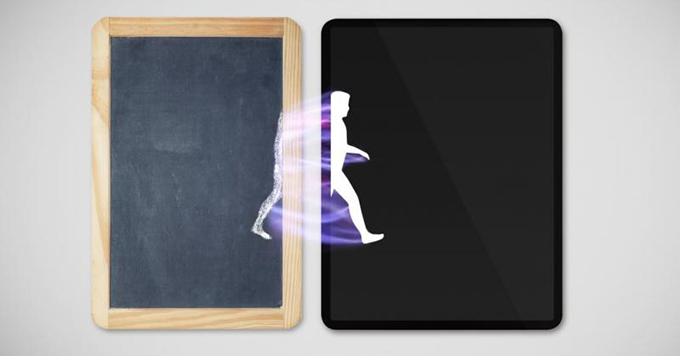
The confinement derived from the COVID-19 pandemic has meant an unforeseen and drastic adaptation on the march of the teaching-learning processes established in the university. From one day to the next, the teachers found themselves in the imposed need to teach all their classes in person, and the students had to continue their studies without leaving home.
A new scenario that has been a great challenge for all the agents involved. Beyond the teachers and the students, management teams (deans, department heads, vice-rectors and rectors), digital-technical care departments and educational advisory services of the universities have had to working against the clock to respond, with quality and equity requirements, to an unexpected situation.
Silenced challenges
This scenario has meant answering questions and challenges that, despite being present in society, came more or less silently in the various contexts of university education.
We refer to aspects related to the use of technology for educational management and, more specifically, to the use of digital for teaching-learning processes in higher education.
In summary, the need to lay the foundations necessary for the development of digital competence of all university students, regardless of the degree or postgraduate course, and for the deepening of digital teaching competence of university teachers in all areas of the university, has emerged. to know.
We have succeeded, but remotely
It seems that the experts agree in pointing out that the teachers have been able to respond to an alarm situation quickly. But this does not mean that online teaching has taken place . Many of us have turned our classroom teaching into a virtual format.
Therefore, we have carried out an emergency remote teaching , which is far from the characteristics and quality criteria of online or blended teaching , despite the fact that it has been a response that, while awaiting evaluations and investigations, can be classified as Enough before the situation that we have lived and that nobody expected.
The virtual is not a replica of the face
In these times, all the agents involved have become aware that online does not mean making a replica of the classroom in virtual environments. This has led governments and agencies that guarantee the quality of the university offer to design new strategies for quality assurance in virtual education .
The 2019-20 academic year comes to an end but, according to experts and political leaders, the existence of the virus continues, so in the near future, we will have to learn to live with it. This will mean maintaining enough health security measures in our classroom and not being able to return to the same scenario that we left on March 15, 2020.
The best scenario
Some media have already published that the rectors do not seem to contemplate in any case 100% face-to-face teaching, so we will face a new challenge: the hybrid , blended learning or the form of teaching-learning known as blended learning .
This second new situation , which seems to become the inheritance that confinement will leave us, requires rethinking all graduate and postgraduate studies and the subjects that comprise them from planning to evaluation .
In addition, we will have to call upon the role of the teacher, its functions and its roles within a hybrid form of teaching in which the self-regulation and autonomous work skills of the students take special relevance. Without forgetting the inclusion of active methodologies for the development of the necessary basic and transversal competences (teamwork, initiative, communicative competence and critical capacity) to train professionals prepared to enter a changing labor market and contribute to a society in need of minds. critics and people with initiative to build a more just and sustainable world.
We need to systematically delve into the distribution of the tasks of the students in the classroom and outside it, based on the design of implementation of the ECTS system ( European Credit Transfer System ) of the European Higher Education Area . In the use of technology to create teaching materials suitable for new learning environments with their own characteristics, such as digital learning environments and in an evaluation system focused on more continuous and / or personalized feedback , which would open doors for us to the implantation of a continuous evaluation that involves the students in their own learning and does it in a conscious and responsible way.
The big data emerges
But it is also important to plan the aspect of the safe use of the data that emerges from all these educational scenarios. The big data education takes on special relevance from the perspective of the analysis for educational improvement and responsible use of technology to learn.
We consider that the relevance of the inclusion of technology to channel hybrid learning places us on a path where the student can become a conscious agent of the construction of their personal learning environment ( PLE ) in the university, which will It will serve to continue learning throughout life and professional future.
Therefore, we are facing one of the deepest crossroads that the university has experienced in recent times. We must reflect on what we want to be and do. We are at a key time to decide between making a partial and temporary adaptation or the present and future conversion of our university teaching-learning model.
Author Bios: Urtza Garay Ruiz is a Professor at the Faculty of Education of Bilbao (UPV / EHU). Researcher of the Weblearner Research Group in Educational Technology, Eneko Tejada Garitano is an Associate Professor of the Department of Didactics and School Organization and Javier Portillo Berasaluce is a Doctor in Telecommunications Engineering and professor at the Faculty of Education of Bilbao all at the University of the Basque Country / Euskal Herriko Unibertsitatea